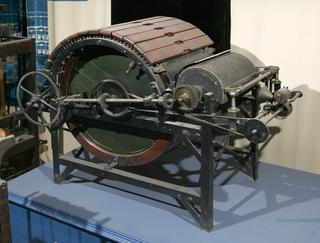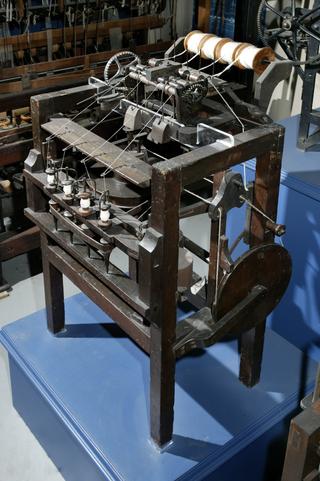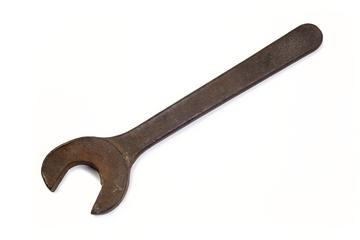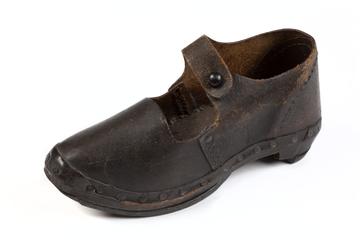
Childrens Clog
- PART OF:
- Pair of children's clogs
- Made:
- circa 1880-1920 in Greater Manchester





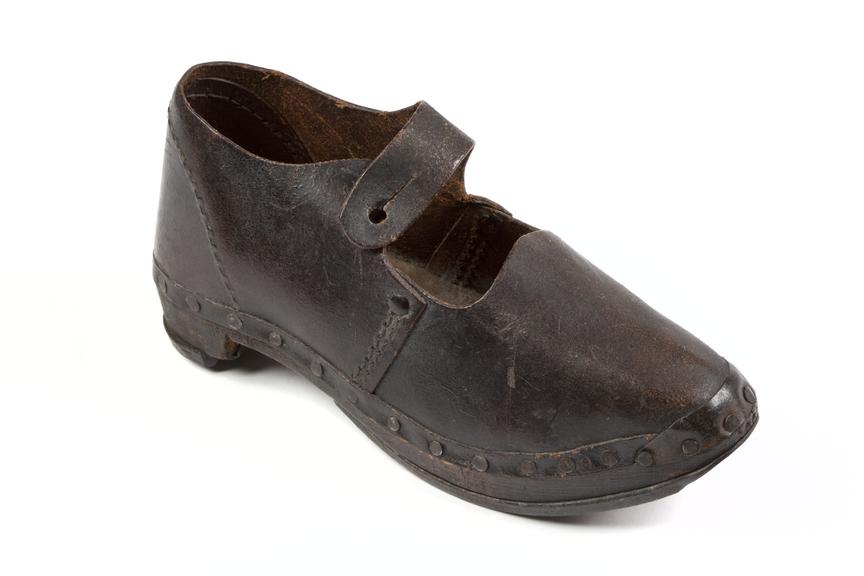
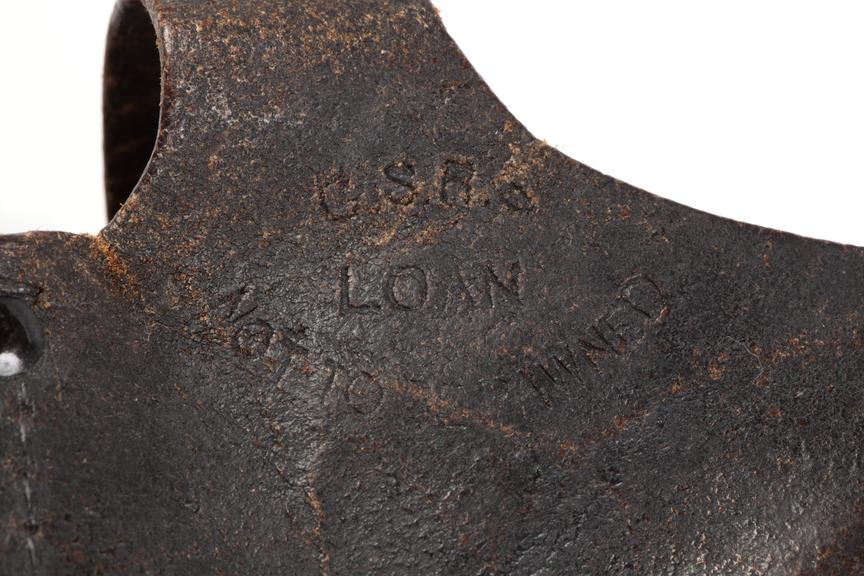
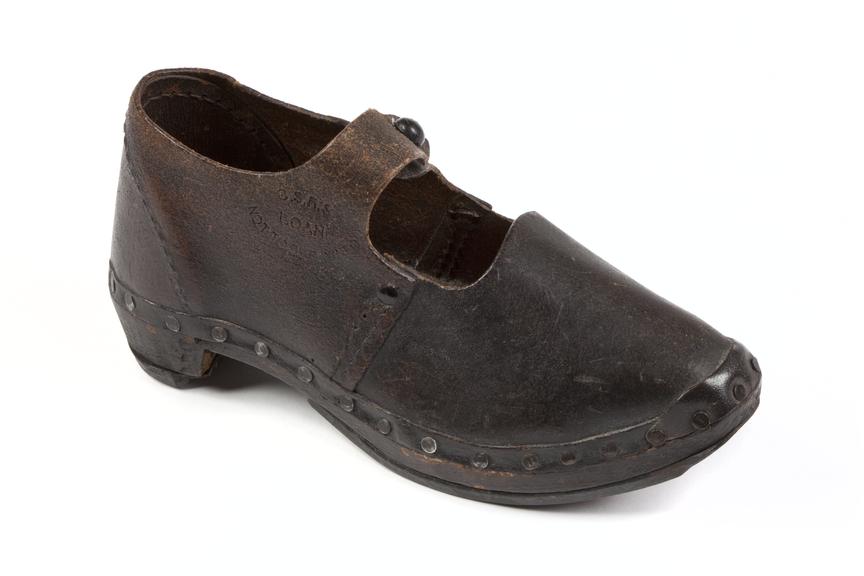
One of a pair of clogs loaned to children that attended the Charter Street Ragged School. The shoes are stamped with ‘CSRS loaned, not to be pawned’.
Practical and hardwearing, clogs were the work-a-day shoe of industrial Manchester’s women, children and men. The children who wore this pair never owned them themselves. They were lent by Charter Street Ragged School in Angel Meadow, Manchester, to children whose families could not afford to buy shoes. They are stamped ‘CSRS loaned, not to be pawned’, to stop poor children or their families pawning them for money. Many members of industrial Manchester’s workforce lived hard, precarious lives. Workers could earn good wages in Manchester’s textile mills, but work was never guaranteed. Cotton shortages or low demand for cloth could shut the mills. Workers then had to go without wages. Many struggled to afford food, clothes and a place to live. So called ‘ragged’ schools like Charter Street in Angel Meadow, by the middle of the 19th century one of Manchester’s worst slum districts, provided food, clothing and basic education to Manchester’s poorest people.
Details
- Category:
- Local History
- Object Number:
- 2015-2004 Pt2
- Materials:
- leather
- Measurements:
-
overall: 183 mm x 66 mm x 75 mm,
- type:
- clog
- credit:
- Gift of Ruth Hitchens.
